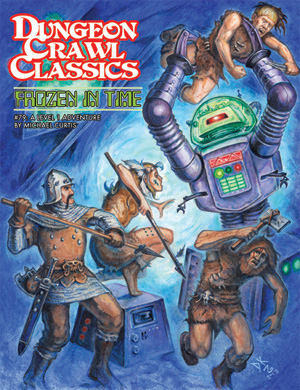Suggestions for extras will be considered, but due to time constraints, I cannot guarantee anything.
If you have already responded to the mathom post (updated), make sure that I have an email address to send this to you! Mathoms will be going out as soon as I get my lazy ass out of bed on August 4th. If you have received nothing by August 5th, and you think this is an oversight, then email me asap and I will correct it as soon as I get the email.
I can be reached by email at ravencrowking at hotmail dot com.
Some preview material:
None
has ever seen Hizzzgrad, the Daemonic Lord of Crawling Things, but his voice
has been heard in the evil chirpings of crickets in lonely places at night,
and his will has been made known through scorpions speaking with unnatural
voices. His voice was heard in one
world by a wayfarer in the desert, manifested through the sounds of night
insects, that led to the writing of that benighted book, The Necronomicon (as it
appeared on that world) and drove the Arabic wanderer mad.
Hizzzgrad
manifests through all manner of creatures that creep and crawl – serpents,
lizards, crabs, spiders, and the beetles that feed on dung and corpses. His dominions are the stinging flies, the
swarms of locusts, and the spineless blind worms that writhe deep beneath the
ground. There is much he knows of
corpses and the dead, and those Wizards who would wield the Arts Necromantic
seek the patronage of this Daemonic Lord.
Hizzzgrad’s
ceremony must be conducted in a graveyard or crypt oozing with worms or
crawling with invertebrates.
|
Patron Taint: Hizzzgrad
|
||
Those
tainted by their connection to Hizzzgrad become less human. Insanity creeps upon them as they listen
more and more to the voices of the crickets in the night, and identify more
with the creeping things that hide from the sun than they do with their
fellow men. And, as is well known,
those who follow Hizzzgrad are compelled to write of their journey into
inhuman madness, and their missives can lead others into psychosis. Those who would read the tainted ramblings
of the Lord of Crawling Things’ followers do so at their own risk…for thus
does Hizzzgrad gain followers to whom the Daemonic Lord owes nothing
whatsoever.
|
||
Roll
|
Result
|
|
1
|
Night Voices: When this taint is first rolled, the wizard
becomes aware of words and language hidden in the nocturnal sounds of
crickets, serpents, and flies. Even the
whine of mosquitoes carries a message, if only she could understand it. When this patron taint is rolled a second
time, the wizard begins to understand the voices, and they bolster her spell
casting. When the wizard is in a
location where she can hear the night chorus (judge’s determination), she
gains a +2 bonus on all spell checks.
When this is rolled a third time, the meaning of the voices becomes
far clearer, and more terrible. The wizard
retains the previous bonus, and, in addition, the judge may tell the wizard
additional rumours and secrets, as well as provide adventure hooks. However, if this taint is rolled again,
treat as if Madness (see below) were rolled instead.
|
|
2
|
Madness: When this patron taint is first rolled, the
character begins to go mad. Initially,
this is just a role-playing consideration (and the judge should encourage
role-playing the increased madness).
Thereafter, each time this taint is rolled, the character permanently
loses 1d3 points of Personality and gains a +1 bonus to his Will saves. Each point of Personality loss can only be
recovered by performing an act of madness so astounding that the judge
chooses to return the point. Each
time, the judge should require something that tops the previous act. Eventually, the player will be forced to play
out the character’s madness, accept the Personality loss, or retire the
character. If the character’s
Personality drops below 3, irrevocable insanity causes the character to
become an NPC under the judge’s control.
There is no other limit to how often this taint can be rolled.
|
|
Etc.
This is a special thank you for those of you who have taken the time out to provide feedback (as per the "mathoms" post), and there are no plans to release it more broadly at this time.
Thanks & Good Gaming!








_-_Google_Art_Project.jpg)








